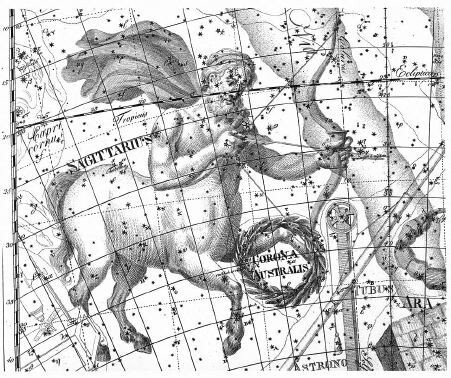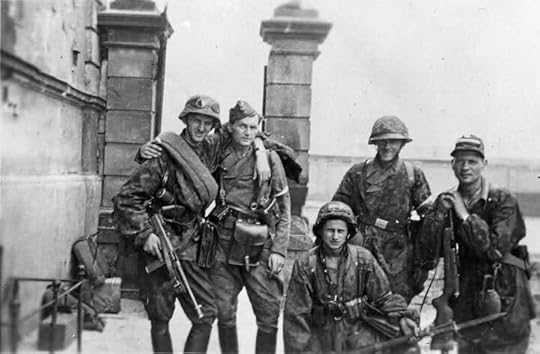Martin Smallridge's Blog, page 2
May 30, 2022
En route towards the pyre…
 Pixibay: By MrWoodElli
Pixibay: By MrWoodElliWe are the Generation Zero grafted sensibilities to features of the world that we cannot be sure would yield to our attempts of definition, but nevertheless we have adopted them on a whim! It’s an imposed construct tailored to our financial/physical/intellectual needs — invented by Google, Meta, services like Netflix, Prime, Disney+ and everyone else we allow to use cookies without wondering what it entails. Our identity is defined by the constant accumulation of different needs within us — modelling behaviours and creating urges, all with one goal: to maximise profits. We are fuel for the corporations — we are not walking to the pyre anymore, we became one!
A few words on a time that never came
Nowadays, people strive toward fulfilment, and curiously enough, these feelings are mostly on an ambitious level, created and fueled, fitting people into roles and suits they don’t feel comfortable in — yeah! They pinch and squeeze from every side and make us consume our success only to be sucker-punched at the end? For some time now, always and everywhere we have been accompanied by that strange sensation of emptiness lurking up ahead. It crops up in our consciousness as we give in to the overpowering feeling of fulfilment causing risk-taking as we balance on the edge reaching for new emotions. This seemingly internal process that pushes us towards perdition is in fact a pure manipulation of forces faced by every human being on this planet — waging a battle of which he often is unaware.
Looking at life in recent years, one would like to exclaim: this is where I am wrestling my shadow, though it is always a step ahead! Everyday life and repetitiveness as an all-encompassing emptiness? Filled with the hustle and bustle of life and yet terrifyingly barren, cold and dark. We live under the pillory of uniformity, where everyone thinks they have to match someone or something — hence it’s reinforced feeling. Added to this is the awareness of loss. Well, that’s a fundamentally false belief, but painfully perceptible.
On our return to normality, barely a day after we found the world at the moment of solstice, in the confusion of the violence of the density of time. We are like the wolf that bit off its paw to free itself from the trap. Apparently free, but incomplete. Emerging from the darkness directly under the piercing rays of the light, we feel everyday life with redoubled strength of all the added values — it seems stunning, marked by love, winged by dreams that have been longing for their moment. But it is also a world that has verged on madness, a reality suspended on the threshold of extinction — with its ever-recurring spectre deeply rooted in our mass culture. This is why the question of identity is so important. Since, in essence, the problem of emptiness is an attempt at identification — I, that is, who?
It can be seen very clearly amongst children, who today need even more acceptance and understanding. For if so many of us (adults) couldn’t find ourselves in a time that never existed, how will they cope in a time that hasn’t come yet? But a world pushed into oblivion may be brought to the present, by calling things and people by their names, this seemingly elusive time, through the voices of those rescued from getfulness, has the power to reveal the empty place left by a life annihilated through fear and uncertainty. As we now understand more, we can uncover this void and write it over again.
Yet the ease with which we can pass over any diagnosis or solution is misleading in fact, for revealing the gap will not lead to its cicatrization. The absence keeps staring at us ominously from the nearby abyss. In this breath, the horror of recent years lies dormant. But there is also a glimmer of hope, a crack open to the possibility of re-evaluating old truths. All hope lies within our children for their journey through time has changed them, making anew as it were, more malleable. It is as if someone gave us a second chance. The question is, have we taken full advantage of it?
I am afraid of the answer. I see that we are still looking for ways to survive, but on this wandering, should we look for new ways at the cost of renouncing ourselves, rejecting who we are, crossing out our memories, uprooting ourselves? How is the core of one’s humanity linked to the tradition that has shaped them? What is the essence of this tradition, it’s living, profound current? And how does the experience of falling — occurring often at crucial moments — fit into this?
Was it an impulse of harebrained reason or a calculation of many years? Now, after almost 3 months of struggle, it no longer matters. Time (again) stopped on the 24th of February and stands by watching us with a mocking smile, as we struggle to put the pendulum back in motion.
There is a proverb about misfortunes that come in pairs… So what if it is? It makes it even worse, especially when we realise who are the architects of these misfortunes. Is the death of defenceless people, children, women, and old people murdered in Bucha a watershed moment for us (the civilized West)? Do the bombs falling on schools, hospitals, kindergartens and theatres have enough power to shake us and become a breakthrough in our perception of ourselves and the world? I will answer for you — No! Those who suffered the horrors of war are like convicts marching towards the scene of execution — anaesthetised and sunken in themselves. Their time stands still or goes back to the moment before the catastrophe. Where the vision of humanity corresponded to the image of man and his roots that held him firmly upright…
A super-unreality
Looking at the war from afar, having in mind the experience of isolation and restrictions, allowing impairment to perceptions of reality I see two different planes. The first is what it is: painfully bloody and crying out for the intervention of thoughtful Logos. Evil shows itself here in all its glory, priding itself on how it has grown, and to what extent it has infected people. The second one is a product of cunning reason acting only for itself (and everything that happens by its will is connected with loss and sacrifices) creating a tangible space contained in the words and deeds of those who brought the first reality into existence. At a glance, the analogy I would like to use here may seem quite inadequate, but it is only an illusion since the mechanism of negation and the lack of logic are the common denominator here. The creators of the second “plane” are like and operate on the same principle as, the “anti/never generation”, where denial and contempt for the rest is the axis of action and the fuel for hatred leading to violence. The narrative of fascists in Ukraine is based on the same founding lie as the narrative of a vaccine designed either to eliminate weaker individuals or to control those who have received it. The initial falsehood is much like a drug taken in ever-increasing doses — it engulfs, absorbs and changes reality, at some point becoming its building block. Thus, everything that comes into being afterwards is contaminated and falls under the notion of super-unreality. Unfortunately, the more unreal this second reality becomes, the more people depart the world. Rape becomes a virtue, robbery a reward, murder is considered a heroic act and accepting a vaccination is synonymous with naivety and susceptibility to the dictates of unspecified forces ruling the world. In this way, dictators, demagogues or those for whom profit has become the prime value introduce a new man into the world. This creates a division between vulnerable and non-vulnerable men. As Milton rightly pointed out, this is the shortest route to upheaval.
For every upheaval has its mad prophets, and at any given time there will be some Cassandra crying Woe to you, O House of Priam! Unfortunately, what we see on our TV screens is not a film directed by Wolfgang Petersen, although, as the Commander of the 36th Infantry Brigade defending the Azovstal plant Serhiy Volynskyi wrote: “I ended up in some hellish reality show where we are fighting for our lives and the whole world is watching this interesting play”. Alas, he was wrong. Hardly half of the world, or even less. And indeed those who are watching sometimes say with a smile on their lips: „it is all propaganda and a staged performance.” People becoming increasingly passive and even sceptical, not from a lack of information, but on account of its widespread availability. From morning to evening we are inundated with a constant stream of news coverage by many sources, divisible into different types of ‘truth’: amplified, distorted, transformed and newly produced. Some of us resist by using various filters, read and feel with our hearts, others take everything in with their eyes, and a few give up, accepting the straightforward messages from the transmitters of “ super-unreality”. In a free world, in a realm of choice, super-unreality occupies a special place, an easy option and always within reach, with its door perpetually open — it is the shortest route to the pyre , where the image of who we were, who we are and who we could be is burned.
All wars begin with one man’s head and result in the suffering of millions, that is what my grandmother used to say, and she was right. She lived through both of the worst conflicts in the history of mankind. When the Great War began, she was already a married woman. By the time Hitler rolled his armoured divisions through Poland, she had already given birth to four children, one of whom was taken away by the Spanish flu, and the other three were in their teens or had already grown up. So you can’t deny her “expert” qualities, as they say nowadays — all you have to do is to have seen or heard something to become an expert. So, it seems to me that despite her terrible experience of both conflicts, she would still be terrified by the vision of war in Ukraine. As this war that is taking place far away has already taken place in our homes — it oozes out of our screens to our hearts and minds. It is on Facebook, Instagram, YouTube, and Twitter. It lives with us, sleeps with us, wakes up with us and then we take it to work, to social meetings, to sports halls — it has attached itself to us as if it were some kind of implant that we can never get rid of.
Transplanted identity, a prison without bars!
We are the Generation Zero grafted sensibilities to features of the world that we cannot be sure would yield to our attempts of definition, but nevertheless, we have adopted them on a whim! It’s an imposed construct tailored to our financial/physical/intellectual needs — invented by Google, Meta, services like Netflix, Prime, Disney+ and everyone else we allow to use cookies without wondering what it entails. Our identity is defined by the constant accumulation of different needs within us — modelling behaviours and creating urges, all with one goal: to maximise profits. We are fuel for the corporations — we are not walking to the pyre anymore, we became one! Thus — wanting to exist, we cease to exist much like a blaze devouring itself, the more we struggle, the less we are. Thinking of it this way, I feel like Napoleon languishing for years on Saint Helena. I am seemingly free and yet it is only a prison without bars where everything that is mine turns out to be the same presumptive lie that so effectively distorts reality. The impulsive need to possess, the multiplication of wealth, excessive consumption, political sympathies, musical tastes, understanding of art, rationing of access to knowledge, acceptable patterns of social behaviour, the acceptance or condemnation of violence, which is also subject to strict rationing on both a moral and a physical level, all these are not me! And yet… It is me, who accepts the dictates of reality, same one who undergoes an identity transplant in an attempt to persist with hope that one day someone else, some better person will put out the fire! The problem is that others have always been burnt at the stake, fueled by ourselves. It is therefore an eternal paradox, where the victim devours the savior in the hope of becoming rescued.
Today’s man is a victim of cognitive distortions imposed on him from his earliest years, which result in a biased and falsified perception of reality and often creates anti-patterns — as an inducement for urge to leave the identity trap. In other words, our minds are being bombarded with a continuous flow of information thought to be true, when in fact they are not. An example of this is propaganda, or so-called factoids. These are at the very least inaccurate and usually aim to provoke negative thoughts and feelings. As a result, a person who often perceives the world on the basis of cognitive distortions (without realizing it) may have a very negative image of this world, of other people, and even of himself. The inability to distinguish truth from falsehood leads to mood disorders (depression) or apprehension issues. A peak in these public morbidities was observed after the Wuhan outbreak, and is now being felt by people over-exposed to the torrent of “news” related to the war in Ukraine. This is a constantly recurring pattern and it will intensify in the coming years. Unfortunately, it is very difficult to confront this acrimony, all the more so since there are countless pressure groups, individuals and organisations at regional or global level with particular interests in this area. An alternative reality — the putative lie has become the building block of a new world where truth dies before it is even spoken.
[image error]En route towards the pyre… was originally published in Agora24 on Medium, where people are continuing the conversation by highlighting and responding to this story.
May 23, 2022
Being Volker

Our attitudes, especially in extreme conditions, say everything but nothing about us. For the creator, or more precisely the author, the character sketch is more than just a plan, a map of man’s traits. In a way, we become that person, although we never were and won’t be the one — at least not in our conscious mind. So if you were to ask me which of the characters of „The Mills Kept Grinding” is my favourite, by far I would say, Volker.
Perhaps it is his simplicity that makes him as predictable as our imagination allows us to believe. I created him from nothing, or rather from nobody, unlike the rest of the novel’s protagonists. Holger and Antoni, especially the second one, are snippets of people I know or have known — Antoni is mostly a reflection of my father’s fate — especially in the second half of the novel. Wainwright, conversely, could be somewhat of an alter-ego of mine, Lieutenant Adam, Captain Grzegorz and Lieutenant Bugaj are so much like my real-life friends that I even decided to keep their true names.
There is a certain injustice in the fact that the writer’s imagination is definitely limited by his experiences and the life events he has participated in, but on the other hand, if it is malleable enough, it can be shaped into a realm far beyond the limits of time and space. Thus creating a completely new quality at the beginning of the New Universe, which exists only as an impulse of this unjustly limited imagination.
Jörg Volker is precisely an example of such a character, who functions within a certain historical boundary, corresponds to the nature of the period, and yet is somehow beyond it — becoming a symbolic element thriving regardless of time. The concept of evil in historical fiction repeatedly oscillates on the edge of reality, often clinging to it like a leech to its host. I very much wished to avoid this pattern whilst creating the Jörg’s figure. I see him as an allegory of incarnate evil, but under the command of a mind where it has taken root. Volker’s apparent stupidity and pettiness dissolve like a morning haze throughout his monologues, of which there are several in the book. My idea was to build a multidimensional character, with layers like an onion, hardened and charred on the outside, but on the inside, under each coat, there’s a man with all his weaknesses, but also a handful of virtues, although in a small number, that makes him bearable.
It seems that the most important task of a writer confronting evil is to make it bearable for the reader by connecting the fate of the evil-soaked characters with the emotions of the recipient. The core of this concept is the eternal struggle between light and darkness — but is it for sure?
It seems that this perception has been exploited so many times that without much effort anyone can identify it and reproduce it imaginatively as if it were some generic pattern inscribed within our genetic code.
That is why I have made a certain turnaround here, or if you prefer, a reevaluation, by referring to a formula that is just as old and proven as the above — Goethe’s evil struggling with itself, where the lesser one can prevail (fight) the greater. Punishing injustice and meanness with the same methods that were used in the first place to achieve them. That’s Volker in a nutshell, and that’s what Holger thought of him: „One thing is for sure, Gerver was probably the only person on the entire earth to have encountered Volker’s knife and survived. So if he even feigned trench neurosis, it was the best he could do in this case., as surely Volker must seem to him an unholy force that may return any moment soon. No one bothered with this miserable man anymore, and even Behrendt in the course of time gave up investigating the truth. In the end, Volker, although not fully understanding his own role, became a “part of that force that always wills the evil and always produces the good”. Perhaps not exactly as in Goethe or Bulgakov, but nevertheless, he turned out to be the judge, punishing the injustice and wickedness of a man to whom no human nor divine laws seemed to apply.”
Can a writer dissociate himself from the figment of his imagination and at the same time give that figment a convincing touch of authenticity? It is as if a father were to deny his own child, or even worse if a mother doubted the birth claiming that the blood of her blood is in fact utterly foreign to her. While writing Volker I was very afraid of this dependence and I admit that there were moments when I had to become him — Being Volker… It is a horrible, but at the same time, strangely attractive experience to enter a completely different role, break through all the barriers and become an independent being. At times it seemed to me that it was Jörg who dictated the story and told his thoughts as I (the author) only wrote them down.
Evil is particularly attractive to us (readers and writers alike) by virtue of its foreignness. To put it simply, it is like the fruit of the orient — unknown and coveted to the point of satiation.
It is difficult to openly admit it, but particles of this malice exist in each and every one of us. It is not clear whether we are born with it, or perhaps it is sown in us by circumstances: close family, distant relatives, acquaintances etc. I do not know if we nourish it to the same extent, but the mere truth is that it lives within us and makes itself heard when we believe we know it all. Well… Do we?
So, does the writer consciously choose the way of describing evil, making it the theme of the novel, or is it by chance evil that tempts the writer with a different narrative timbre?
Maybe it is naivety on my part, but I do believe that the subject within the story picks the author. While writing “The mills kept grinding” I couldn’t help feeling that all these stories and people in some miraculous way imposed themselves upon my imagination. Resistance seemed superfluous, as deep under my skin I felt that they were born out of my personal experiences or those I had inherited in the orally transmitted traditions of family narratives. Sometimes these stories were so subjective as to almost transform into vivid images, thereby obscuring this thin line between here and now and there and then. All this mixed with childhood emotional recollections of the wild fanaticism of the North Koreans seen by my very own eyes in the mid-1980s.
I guess the cumulative experience of my parents as well as extended family combined with my later exposure to the predatory totalitarianism of the Kmirsen regime — which I touched and burned upon as a child — did its work in triggering the need to repair the world through means of the written word. I was finally helped by the image of my friends, whom I could set against evil. It gave me a certain armour, it clothed me in a suit of friendship protecting against the Volkers of all times and places.
So, what constitutes truth in a novel? For God’s sake! A writer is not a reporter, so let’s not insist on it! We feel and write with our hearts, our souls are laid bare to the blows of the outside world and we often suffer for we are a little over-sensitive to its charm. A rational choice, a story written in cold blood is like a point of light vanishing into a void amidst a raging ocean — it is bogus of all bogus! So, I never got the feeling of making a rational decision, On the contrary, many events and people participating in them, memories and dreams associated therewith, read books, heard stories and seen films… This whole marvellous and at the same time Surrealistic procession of inspirations and prompts impose themselves suddenly demanding attention. That’s why ghosts and their domain that go against rational reality are constantly invoked. Therefore, the irrational element of literary creation will always be one step ahead of the rational one since it is born out of it but slips away into something bigger and inherently better — something that each of us aspires to. Accordingly, as I see it, this irrationality resides within us alongside this element of evil, and there is also a ray of sunshine — which even Jörg was unable to resist when he rescued Frau Liselotte and Co. A novel is meant to bewitch — but that cannot be attained with a rational vision of reality where everything is as it should be.
The appearance of Volker had one essential purpose, to reduce, and if possible eliminate, the distance between the story and the reader. Nothing stirs the circulation more than the feeling of hatred and contempt against those we believe ourselves to be better from. And who among us could possibly be lesser than Volker? In this sense, he rather became my victim than I his. In a way, he is a victim of all of us, although you could say that he forced his way into the world — for we needed shade to appreciate the sunshine.
The book is available on Amazon and other retailers…
[image error]Being Volker was originally published in Agora24 on Medium, where people are continuing the conversation by highlighting and responding to this story.
March 17, 2022
Just a Game of appearances
Many of you were born in a safe place, in a country where war has no access, and you have never feared for the life and health of…
January 19, 2022
The ordnance of Gods and Men
Picture a cold winter. Snow crackling under your feet, blizzards, wind howling across the wastelands and forests with overwhelming…
January 2, 2022
Second Issue of Irish Field Archery Monthly
You are welcome to read the archery magazine, in addition you can visit the dedicated website www.tifam.news where you can read the blog…
December 7, 2021
Time
Time by its nature remains hostile to every life. We come into this world, we live in it and pass away, and all upon its severity.








